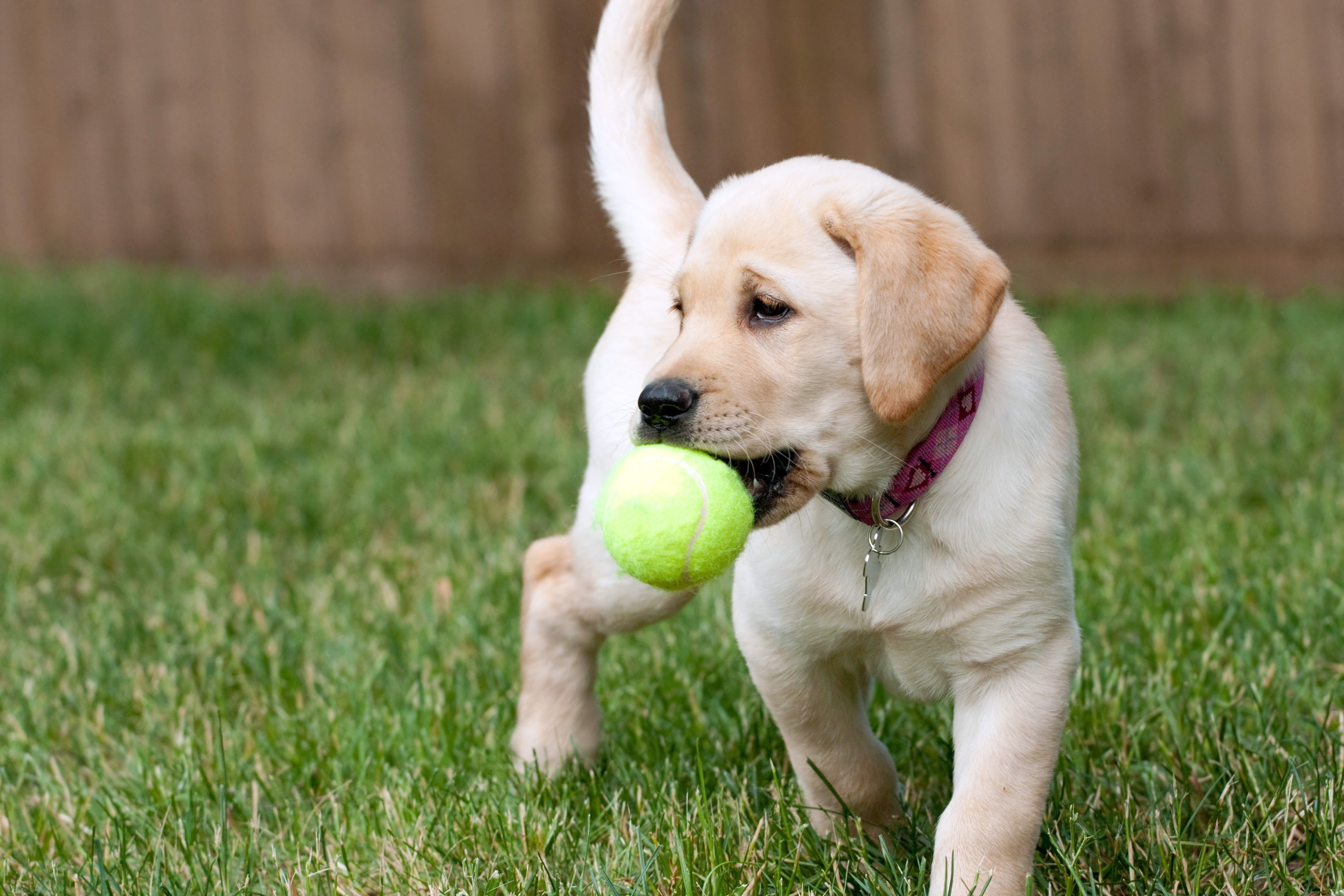Introduction
Bringing home a Labrador Retriever puppy soon? Congratulations! You're set to have a loyal pal in this sweet-faced breed. Friendly, outgoing, and eager to please—these are just some of the traits that make the Lab the most pawpular breed in America. Their easy going personality allows them to get on well with both humans and other canines, making them furrific family dogs. Labs are energetic furballs that need plenty of exercise, with swimming and retrieving being their favorite activities! So while Labrador Retrievers make woofderful companions, they're still a lifelong commitment and a huge responsibility. Read on and get to know this affable breed better before you welcome one into your life!
Home Preparation

Just like welcoming home a human baby, bringing a Labrador puppy into your house requires thoughtful preparation. Before the newest member of the family sets paw inside your home, make sure that you've removed all potential dangers such as medication, toiletries, cleaning supplies, and small items that might be scattered on the floor. Invest in baby gates if there are any areas of your home that you wouldn't want your new furry friend to enter.
Have fresh water and dog food waiting for your Lab when they arrive—they should do well on a high-quality, vet-approved puppy food. You'll want to have grooming tools on hand as well, as Labrador Retrievers tend to shed and need to be brushed weekly. A crate filled with chew toys not only provides a safe environment for your pup, but also serves as a useful housetraining tool.
Create a Schedule

If you got your Labrador puppy at around two months of age, they should be eating roughly four times per day (e.g., 7 AM, 11 AM, 3 PM, 7 PM). The number of feeding times should decrease as they grow older, and how much you feed them will depend on your pupper and on your brand of dog food. Be sure to consult your vet when you take your pooch for their first vaccinations and deworming, when they're about six to eight weeks old.
Labs are intelligent dogs that are eager to please, making them easy to train. The more consistent you are with your housetraining schedule, the faster your Labrador pup will learn proper potty petiquette. In general, puppies can hold it in for one hour per month of age, so if you work and can't come home at lunchtime, have someone go to your place or hire a dog walker to let your Lab out a couple of times during the day.
What to Expect the First Week

Help your Lab adjust to their new surroundings by spending as much time with them as you can during their first week home. This is for your benefit, too, as Labrador Retrievers are a moderately fast maturing breed and before you know it, there'll be a medium to large dog standing in that little puppy's place!
Since your pup will also be teething at this time, expect to have your shoes, furniture, and other possessions chewed on and possibly destroyed. Aside from chew toys, you can minimize destructive chewing and keep your Lab busy with puzzle and retrieving toys. With the right preparation, your Labrador Retriever puppy should feel at home in no time!

Often
Labrador puppies can sleep up to 20 hours per day, while many adults spend over half of the day snoozing.

Fetch
Labradors love retrieving, so fetch toys will be sure to keep your dog's tail wagging!

Easy
Labs enjoy working with people and thus are fairly easy to train.


